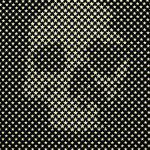As I sat with a colleague, his question was, “With everything going on in Ferguson, what is the church’s response? We should be doing something!” It’s a question I’m sure many people who care about humanity have asked. Should we join the protests? Should we advocate for equality by exposing the evil in this racial injustice? How do we do it in a way that is respectful to the victims of this tragedy? How do we do it in an integral way, not barging in as if we have all of the right answers, much like co-opting colonialism has done in the past?
My only response: “Right now, we grieve.”
I struggle to find my voice, if I have one at all, much like one in the presence of death, mute from wailing, helpless, with nothing to offer anything or anyone. Many of us find ourselves in a space of grief today, in the presence of death, without answers and without voices. Indeed, we grieve for people who have had their own voices stolen or silenced.
In the struggle of determining if I have a voice, much less a right to have a voice in this conversation at all, I consulted an old dialogue (rather monologue) partner, Macklemore. In his lyrics from “A Wake,” he debates about situations he should/shouldn’t even get involved in, having white privilege and white guilt at the same time – a position many white folks have found themselves in, I’m sure. Also, in “Same Love” he writes, “The same fight that led people to walk out and sit ins – It’s human rights for everybody, there is no difference…When everyone else is more comfortable remaining voiceless, Rather than fighting for humans that have had their rights stolen.”
Where do I find myself? Where is the response of the church in the midst of injustice? Wrestling with an appropriate response feels like agony, yet, in the presence of death, you cannot skip this step in the grieving process. You walk through it, hopefully with a community, though there are aspects of loneliness that have to be endured.
Henri Nouwen says:
When someone comes to us in pain, something in us wants to reassure the other and to move away from the pain. We’re both trying to avoid the problem when we need to be present to the reality together. Real healing is overcoming this mutual avoidance and being together where it hurts. God came to share our pain, and healing takes place in the sharing—at that place with each other. In spiritual life, there is no sharp distinction between joy and pain.
A wound is inflicted, and the body helps to heal it in time. The wound can be infected if it is not protected, so may we be active rather than reactive; may we continue to keep our eyes open, confessing our laziness in representing and identifying with the other; and may the church be a place to usher in healing when the time is appropriate, admitting her fault in neglecting brothers and sisters and failing to be a place for people.
In response to these thoughts, my colleague ended with this, “Although it seems passive, grief is active. It demands that we actually live in the full light of reality. It demands our imaginations to envision something new, because what once was is no longer there. Grief is the first step forward. To grieve is to respond.”
Lord have mercy.












